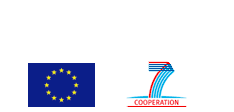WETwin
Enhancing the role of wetlands in integrated water resources management for twinned river basins in EU, Africa and South-America in support of EU Water Initiatives
Introduction
The WETwin is a research project supported by the European Commission under the Seventh Framework Program, Activity 6.2 “Sustainable management of resources”. WETwin is running from 2008 to 2011. The consortium of WETwin consists of 9 research, higher educational and non-governmental institutions from Europe, Africa and South-America.
The project has been established on the ground of the EU Water Initiative (EUWI). It aims to contribute to meeting the UN Millennium Development Goals (MDGs) for drinking water and sanitation, within the context of an integrated approach to water resources management.
Objectives
The overall objective of WETwin is to enhance the role of wetlands in basin-scale Integrated Water Resources Management (IWRM), with the aim of improving the community service functions while conserving good ecological status. The overall objective has been broken down into the following specific objectives:
- Identify community based technical and institutional solutions for the management of wetlands and river basins with the purpose of utilizing the drinking water supply and sanitation potentials of wetlands for the benefit of people living in the basin. This concerns solutions for improving the relevant capacities of wetlands.
- Account for ecosystem functions and values of wetlands. The proposed management solutions should also take care for preserving (and also for improving as much as possible) the ecological values of wetlands.
- Identify strategies for adapting the management of wetlands to the changing environmental conditions with special regard to the changing climatic conditions
- Identify solutions and strategies for integrating wetlands into river basin management and planning, by taking relevant national and international policies/guidelines into consideration, and also by accounting for the envisaged community service functions of wetlands.
- Ensure that stakeholders and decision makers will benefit from the project, also after the end of the project.
- Increase the global exchange of expertise on wetland management and on IWRM; increase the transferability of results and achieve better international networking; enhancing North-South, South-North and South-South (Inter-African, African – South American) cooperation.
- Increase the capacity of relevant organisations to manage wetlands and river basins in an integrated way.
For more information see the project webpages at www.wetwin.net

